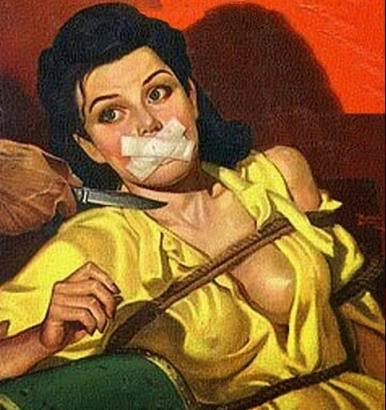By. P.J. Parrish
I don’t get to read for pleasure often, so when I ducked away to Sanibel Island last week, I took a couple paperbacks and my Kindle, all loaded up with stuff I’ve been meaning to get to.
It was like a unleashing a starving stray dog on a smorgasbord table. I finished Joyce Carol Oates’s short story collection “The Female of the Species,” woofed down a couple old John D. MacDonalds, Tom Franklin’s “Crooked Letter, Crooked Letter” and Gilbert King’s “Devil in the Grove.”
When I ran out of stuff, I turned to the shelf of ratty paperbacks in our rented bungalow. There was a book by an author I hadn’t heard of before. I love discovering new authors, so I read the back copy. Good premise. I skimmed the first page. She had me. I took it down to the beach, lathered up with sun block, and settled in. I was ready. I wanted to be seduced. The first chapter was really good. A female cop, a grisly setup, a clear narrative voice, taut writing that teased me to turn the page.
So I did. And damn, I wish I hadn’t because things went downhill fast. This female cop suddenly turned into a blithering mess. Worse, her ex-boyfriend came sniffing around and after she took him back, he took over the case. HER case! Suddenly, this cop — traumatized though she might have been — allowed weasel boy to take charge of everything. Worse, the writer LET HIM DO IT! Every time there was a new twist in the case, it was weasel boy who led the charge. Where was our heroine? Weeping and whining on the sidelines, a pathetic Hamlette, torn by indecision.
The thing degenerated into a mass of bad romantic cliches. Complete with a see-it-coming-a-mile-away pregnancy that by book’s end gives our girl a good reason reason to quit her police job and make waffles for weasel boy. I was furious. Do you ever have the urge to throw a book across the room? I was sitting on the beach and would have heaved this one into the sea oats but I might have hit a turtle nest so I got up and threw it in the Dumpster.
Why?
It wasn’t because I hate women in distress books. The female in jeopardy is a standard of our genre and in the right hands, this can sometimes rise above cliche. But this author was dishonest. She started out with a premise that promised a woman of strength and depth. And I had expectations that this character would rise above her awful trauma through her own grit and courage. As I read this book, I found myself thinking about another book I had read, Theresa Schwegel’s “Officer Down,” which won Best First Edgar. This author also had a damaged heroine whose lover muscles in. But Schwegel let her heroine solve her own problems. The woman cop wasn’t waiting for Dudley Do Right to right her ship.
In the end, I decided I was angry about this other book because I had been misled. I don’t begrudge readers romantic escapism. Hell, I used to write it. But this book was so schizophrenic it was like the first three chapters were written by Germaine Greer and the rest by Phyllis Schlafly. (Yeah, I’m showing my age there). If your setup is a dark tale of a woman cop’s redemptive journey, you can’t switch tones mid-book and start going for the Rita Award.
Tone is so important. And it’s not really the same as mood. Tone is the narrator’s attitude toward the subject — be it playful, ironic, dark, hardboiled, romantic — whereas the mood is what the reader feels by virtue of the setting, theme and voice. And I think tone is something often overlooked by some beginning writers. You, the writer, have to know in your heart what kind of book you are setting out to write. And then you should bend all the powers of your craft to that end. Poe called it Unity of Effect and wrote about it in his essay “The Philosophy of Composition.” He believed that a work of fiction should be written only after the author has decided which emotional response, or “effect,” he wishes to create. And once that was decided, everything else — theme, setting, characters, conflict, and plot — should serve the effect.
We do this via the countless choices we make as writers. What words we use, what imagery is in play, what the sentence structure is, what details we put in (as well as those we leave out). Here’s a visual.:
Both are photos of the Everglades. I’m choosing them because I also went on a “swamp walk” hike in the Corkscrew Swamp this week. The first photograph is by Susan Schermer. The second is by Clyde Butcher. Schermer’s is lush and color-saturated, with emphasis on the birds and setting sun. Butcher’s is desolate, empty of all apparent life and in stark black and white. The first is somewhat sentimental; the second almost existential. Both artists made choices about what details they wanted to include — or leave out — in their work, how they lit their landscapes, the types of trees, the quality of the water.
Same subject, different tones. Each is successful in its own way. But you can’t mistake one for the other.
So what’s my point? I’m not asking anyone to buttonhole their work. It isn’t necessary to try to psyche out editors and the folks who shelve the books at Barnes and Noble. (Is this neo-noir? Is it chick lit? Is it teen dystopia? Do we even care anymore?) I’m not even talking about all the sub-genres we tend to impose upon crime fiction. Some of the best stuff being written in crime fiction right now crosses so-called divides and genres.
What I am asking for, I think, is consistency. And honesty. Be honest with your readers. I don’t mean be predictable. Being honest means finding a tone for your work and sticking with it so that the reality you create on your pages is believable and satisfying. If you want to write romance or romance suspense, go for it and do it well.
But don’t promise me Katniss Everdeen and then give me Donna-Too-Dumb-To-Live. The book will end up in the Dumpster.




I would have the same reaction. Women in jeopardy doesn’t mean they should be weak & in need of a man to save them, especially if she’s a cop. How is that even a romantic notion, for a guy to “take over & fix it” for a woman cop. It’s insulting to women cops too.
Nice post & I like your photo analogy. As writers, we reflect our world view in the underlying themes of our stories. I like my women strong, with men in their lives who know how to appreciate that strength.
Cross genre is one thing; changing a protagonist’s personality midstream is something else. I’m a guy, and the idea of setting up a female character to be strong, then letting her become weak without some compelling event or underlying reason, is offensive.
I agree with you totally, Kris, and would have had the same reaction. Maybe the author didn’t mean to mislead the readers but just got carried away on a tangent and didn’t go back and revise and edit the book for unity and to make sure she delivers on the promise of the first chapters – and the back cover. If not, she should have changed the beginning so people like you wouldn’t get your hopes up and waste time with the opening chapters.
That’s an interesting point, Jodie…that the author neglected to revise the book properly. I agree you can get carried away by a story but it is the writer’s duty to keep things on a leash.
Reminds me of the Dorothy Parker quote: “This is not a novel to be tossed aside lightly. It should be thrown with great force.”
I didn’t even feel guilty about not returning it to the cottage shelf. I felt it was my duty to protect the world from it. 🙂
This isn’t terrible, this is fancy terrible. This is terrible with raisins in it.
Dorothy Parker
(my hero) Terri
PS: I hate Mary Sues like fire and a weak Mary Sue like stabby fire.
Great post, and I love the photo analogy. Seems like tone is an important aspect to keep in mind during the rewrite phase so you can fix any inconsistencies.
Eric. I had this happen to me a couple books ago…did not realize until rewrites that the tone was wavering between very dark and irreverent. I was trying for a little levity and humor with one secondary character but realized, thank god, that it wasn’t working in the big picture.
It’s frustrating when the tone of a book changes mid stream – I would have chucked it up against a wall:)
I also feel like I spend so much time trying to get the tone and voice right for the first few chapters it would be very sloppy if I then let that effort go to waste for the rest of the book! I always think ‘start as you mean to go on’ – don’t flake out mid stream:)
I didn’t really grasp the importance of tone, Clare, until I wrote what I thought was a lighter “chick lit” type mystery. When our agent submitted it, not one editor was interested. And there was a consistency to their reason: “It’s neither fish nor fowl.” Meaning, I realized when I reread it later, that I had not committed to a tone but had let it wander all over the place. The book did not work. And because my writer’s “heart” is dark, I haven’t tried to write lighter stuff since.
PJ-
Other than complimenting you on a very clear and useful post, I have just two things to add: your response to an abrupt shift in tone shows how much passion bad writing can generate. But you shouldn’t throw away someone else’s book: the owners of your rental have the right to like junk.
No, make it three things that I have to add: the obsession with making nice in social media must explain your providing the names of all the authors you read, except the one your post is principally about. When a writer encounters a book that produces such a strong negative response as this one did in you, I think you have a kind of obligation to name that book, and to let the chips fall where they may.
I don’t know how any author could miss that, having a weak protagonist is not a good idea. As stated above, it is insulting to women in general, and even more so to a woman in a position of strength, such as a cop. The author could not have possibly even self-edited this, much less than having it professionally edited. I understand that it is expensive, and just starting out is hard. There are editors out there willing to work with new authors. I have been speaking with an editor that is willing to work with me and allow me to make payments when I am ready. I think it is so important for me as a beginner to get a editor. Thanks for such a good post, PJ, to remind us all the importance of tone and especially ensuring the fulfillment of the promise made to the reader.
Great post.
A promising tale that I was recently reading (and enjoying) had developed a larcenous but blood-free crime plot, engaging likable characters, some funny dialog and a sharp old time detective. All is good!
Next scene one of the ‘likable’ characters performs an act of terrorism, several die and the story spirals into angst, misery and ugliness. No foreshadowing simply a road out without a DETOUR sign.
I’ve also seen the heavy-hitting tale with grizzled, hardcore characters and plot that jumps off-road and ends up with the characters skipping down the road singing “Mr. Bluebird on my Shoulder”.
While in both cases the change is unexpected (in general a desirable thing) – in these cases it is anything but satisfying.
The ‘tone’ of a story seems to me something akin to the trajectory that the story has. When the kind of detour/off-road shifts you describe occurs the story path does not fit the developed story vector. It does not make ‘sense’ to the reader that a story headed for NYC is somehow now approaching Seattle.
Hmmm? I’m not sure what I wrote can be tracked but I’m with you.
Loved the post. So insightful. I see movies that waffle back and forth across the line. Is it a comedy? Or is it hard-boiled violence with a dull pitch fork? Fortunately, we can just nip it with one click.
I realize the bar will be high for Joeline “Joe” Stonehouse in my next WIP, Avanti. Yes, it’s a car and it’s Italian for forward. It was also Joeline’s handle as a Black Hawk pilot.
Ha! During one of my sleepless nights Jim, I happened upon the old Billy Wilder flick “Avanti!” It sort of holds up…I remember seeing it in my youth and wondering what the heck the title meant.
So true!!
I wonder what the publication date was of this horrible book. I’ve read a few books I purchased at the flea market and I was livid when the female protagonist turned on me like that. One book was published in 1982, so I just assumed that’s the attitude writers had about women protagonists back then. Another was a more modern story, around 201, but it was opposite, the woman obviously dressing down a younger man.
I can’t stand it when women protagonists are portrayed like this. Why can’t they just be normal heroines? lol
Thanks for this article. It was very enlightening. The two pictures gave a perfect visual representation of your point!
“If your setup is a dark tale of a woman cop’s redemptive journey, you can’t switch tones mid-book and start going for the Rita Award.”
UNLESS the poor benighted author thinks letting her weasel boy take over and becoming the mother of his ferret-faced children IS a redemptive journey. Which is a sad, sad commentary.
So how about the MC in Gone Girl? I can’t wait to see the movie 😉 JK-really.